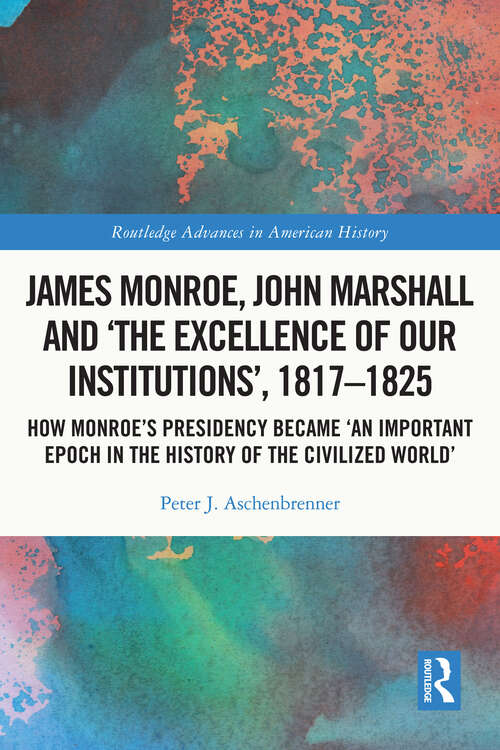James Monroe, John Marshall, and "The Excellence of Our Institutions", 1817–1825: How Monroe’s Presidency Became "An Important Epoch in the History of the Civilized World" (Routledge Advances in American History #21)
By:
Sign Up Now!
Already a Member? Log In
You must be logged into Bookshare to access this title.
Learn about membership options,
or view our freely available titles.
- Synopsis
- When James Monroe became president in 1817, the United States urgently needed a national transportation system to connect new states and territories in the west with older states facing the Atlantic Ocean. In 1824, the Supreme Court declared that Congress had the power to regulate traffic on all navigable rivers and lakes in the United States. Congress began clearing obstructions from rivers, and these projects enabled steamboats to transform cross-country travel in the United States. This book explains how building a nationwide economic market was essential to secure the loyalty of geographically remote regions to the new republic. Aschenbrenner defends the activist role of President James Monroe (1817-1825) and Chief Justice John Marshall (1801-1835). Under their leadership, the federal government made national prosperity its 'Job One'. The market revolution transformed the daily lives of households and businesses in the United States and proved to Americans that they shared a common social and economic destiny. As Monroe declared at the conclusion of his Presidency: 'We find abundant cause to felicitate ourselves in the excellence of our institutions'.
- Copyright:
- 2022
Book Details
- Book Quality:
- Publisher Quality
- Book Size:
- 202 Pages
- ISBN-13:
- 9781000571660
- Related ISBNs:
- 9780367894733, 9781003019381, 9781032251073
- Publisher:
- Taylor and Francis
- Date of Addition:
- 09/11/23
- Copyrighted By:
- Taylor & Francis
- Adult content:
- No
- Language:
- English
- Has Image Descriptions:
- No
- Categories:
- History, Nonfiction
- Submitted By:
- Bookshare Staff
- Usage Restrictions:
- This is a copyrighted book.
